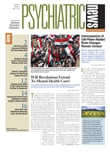In the wake of the horrific shootings in Tucson, what have we as a nation learned? Despite a deluge of blogs and commentaries, I'm not sure we have learned very much. Consider this: two weeks after the shootings, according to the January 31, New York Times, undercover investigators were legally able to buy semiautomatic pistols at an Arizona gun show—even after telling the sellers, "I probably couldn't pass [a background check]." No such checks were performed.
Imagine that instead of an undercover agent, the buyer was someone with untreated psychosis and substance abuse, intent on killing another public official. Much has been written on the need to improve access to mental health care in the United States, particularly for the very small fraction of individuals with severe mental illness who are prone to violence—the risk of which is largely a result of comorbid substance abuse. Indeed, we must improve our mental health care system, especially in cases requiring court-mandated treatment.
But psychiatrists cannot be credible advocates for their patients' health and safety without also being proponents of reasonable firearm restrictions. And, no—that does not mean confiscating guns, banning hunting, or repealing the Second Amendment. It does mean taking sensible steps toward reducing the lethality and availability of certain kinds of guns and ammunition.
Firearm violence is an enormous problem in this country. According to research from the UCLA and the Harvard schools of public health, homicide rates in the United States are nearly seven times higher than rates in other high-income countries, driven by firearm homicide rates nearly 20 times higher. In the population aged 15 to 24, firearm homicide rates are almost 43 times higher here than in other high-income countries.
Moreover, contrary to some much-publicized claims, both homicide and firearm homicide rates in the United States are generally higher in areas with increased gun prevalence. Furthermore, permissive policies regarding carrying guns have not reduced crime rates, according to Dr. Garen Wintermute in the April 3, 2008, New England Journal of Medicine. Suicide rates, according to the UCLA-Harvard study, were actually 30 percent lower in the United States than in comparison countries—but the U.S. firearm suicide rate was almost six times higher. Unintentional firearm deaths were also about five times higher in this country than in comparison countries.
But these numbers don't tell us why lethal violence is so widespread in the United States. Are we inherently a more violent people than, say, people in Japan, the U.K., or Slovakia? The UCLA-Harvard researchers, Erin Richardson and David Hemenway, impugn that hypothesis. For when we examine nonlethal crime and violence rates, the United States is comparable to the other countries studied. The authors hypothesize that we are an "average" country in terms of violence per se, but that our firearm-related crime rate may be driving up our non-firearm-related homicide rate. For example, a drive-by shooting by one gang may provoke retaliatory gang killings, using other means. Importantly, firearms make killing extraordinarily efficient—especially when semiautomatic weapons with high-capacity clips or magazines are involved, as in the Tucson shootings. An attacker wielding a knife simply cannot take down 20 people in 30 seconds.
Suicide rates in the United States are slightly lower than average compared with similar countries, but the profusion of guns here increases the lethality of many suicide attempts. The UCLA-Harvard researchers opine that U.S. suicide rates would likely be even lower, relative to other countries, if firearms were not so readily available.
Some insist that limiting the availability of firearms will merely result in suicide by other means. But appropriate firearms restrictions may buy valuable time, particularly when the suicidal individual impulsively seeks to buy a gun. Thus, Andrew Slaby, M.D., writing in the August 2001 Psychiatric Services, recounted the story of a suicidal man in New York state who tried to buy a gun in a sporting-goods store, only to be told that it takes six months to obtain a gun license. Temporarily put off, the man found his way into psychiatric treatment and subsequently improved. Finally, numerous case-control studies in the United States have shown that a firearm in the home increases the likelihood of both suicide by firearms and overall suicide, for everyone in the household.
Placing sensible restrictions on firearms is not a "liberal" or a "conservative" position. Such restrictions have been advocated by groups as diverse as APA and the International Association of Chiefs of Police. Psychiatrists are sometimes called "ambassadors of reality." It is now time for us to become ambassadors of responsibility. We must become advocates for reasonable limitations on firearm sales and lethality.
(The author wishes to thank Becca Knox, M.P.H., M.S.W.; David Hemenway, Ph.D.; and Garen Wintermute M.D., M.P.H., for their helpful comments and references.)

